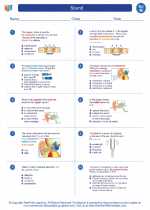Biotechnology
Biotechnology is a field of science that involves the use of living organisms, cells, and biomolecules to develop products and technologies that improve our lives and the health of our planet. It encompasses a wide range of applications, including genetic engineering, pharmaceuticals, agriculture, and environmental conservation.
Key Concepts
- Genetic Engineering: The manipulation of an organism's genetic material to achieve desirable traits or produce valuable proteins. This can involve techniques such as gene splicing, gene editing, and gene cloning.
- Biopharmaceuticals: The use of biological systems or living organisms to develop drugs and therapeutic treatments for various diseases.
- Agricultural Biotechnology: The application of biotechnology tools to improve crop production, enhance nutritional content, and develop pest-resistant plants.
- Environmental Biotechnology: The use of biological processes to solve environmental problems, such as bioremediation of polluted sites and wastewater treatment.
- Biotechnology Ethics: The ethical considerations and implications of biotechnological advancements, including issues related to genetic modification, cloning, and biosecurity.
Study Tips
- Understand the basics of genetics, including DNA structure, gene expression, and genetic variation.
- Explore the different biotechnological applications in various fields, such as medicine, agriculture, and industry.
- Stay updated on recent advancements and controversies in biotechnology to develop a well-rounded understanding of the field.
- Practice critical thinking when evaluating the ethical implications of biotechnological practices and research.
- Engage in hands-on experiments and projects to gain practical insights into biotechnological methods and techniques.
Resources
Here are some recommended resources to further your understanding of biotechnology:
- Textbooks: "Introduction to Biotechnology" by Thieman and Palladino, "Principles of Biotechnology" by Archana Khurana
- Online Courses: Coursera offers courses on biotechnology and genetic engineering
- Scientific Journals: Stay updated on research articles in journals such as Nature Biotechnology, Biotechnology Advances, and Trends in Biotechnology
- Biotechnology Organizations: Explore websites of organizations like the Biotechnology Innovation Organization (BIO) and the International Society for Biotechnology








